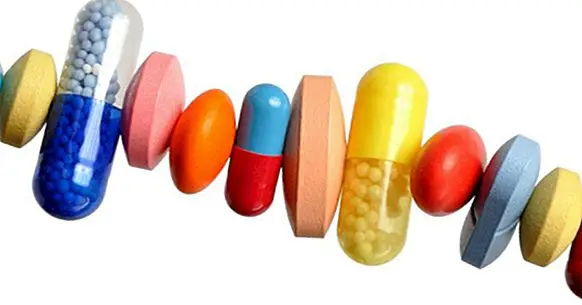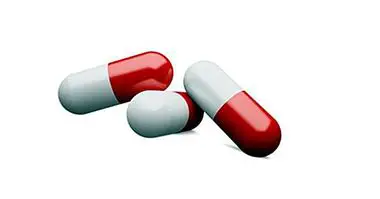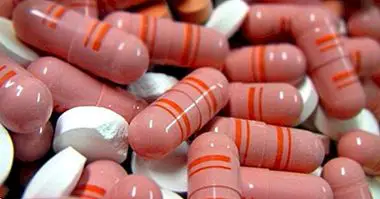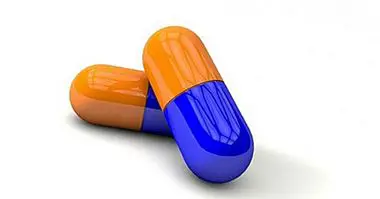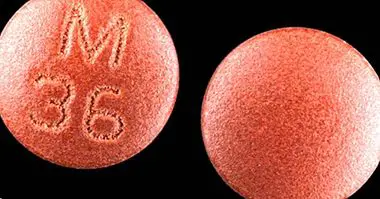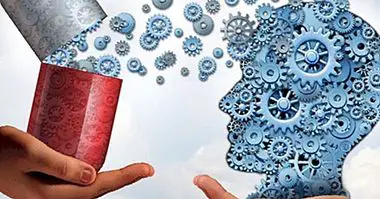The 5 side effects of antidepressants
Since the discovery of the antidepressant effects of monoamine oxidase inhibitors (MAOIs) and the popularization of tricyclics, great progress has been made in this area of pharmacotherapy. At present, there are medications with a high degree of efficacy and that cause few adverse reactions.
In this article we will analyze the side effects of the main types of antidepressants : MAOIs, tricyclics, serotonin reuptake inhibitors (SSRIs) and fourth-generation antidepressants, including norepinephrine reuptake inhibitors (SNRIs) and serotonin and norepinephrine reuptake inhibitors (SNRIs).
- Related article: "Types of antidepressants: characteristics and effects"
Side effects of antidepressants
All psychotropic drugs that are effective in treating depressive symptoms are agonists of monoamines, a group of neurotransmitters . Some enhance the action of noradrenaline, while others are related to a greater extent with serotonin. The dual inhibitors IRSN, of recent appearance, are associated to both neurotransmitters.
The side effects of antidepressants are due both to their monoaminergic action and to the idiosyncratic mechanisms of some of them. Although the five classes of drugs we will talk about cause very varied side effects, we will focus on those that appear most frequently and those that have special clinical relevance.
1. Monoamine oxidase inhibitors (MAOIs)
As the name suggests, MAOIs inhibit the activity of the monoamine oxidase enzyme, which breaks down monoamines to prevent them from concentrating excessively in the synaptic space. The blocking of the enzyme caused by these drugs increases the availability of noradrenaline, serotonin and dopamine, which is effective in the treatment of depression.
Currently, MAOIs are rarely used because can cause severe hypertensive crisis if they interact with food with tyramine , like chocolate, coffee or banana; This phenomenon is known as "cheese effect". They also cause milder side effects: heart rhythm disturbances, insomnia, headaches, anorgasmia, weight gain, etc.
- Maybe you're interested: "Types of psychotropic drugs: uses and side effects"
2. Tricyclic antidepressants
Tricyclic antidepressants, such as clomipramine and imipramine, inhibit the reuptake of serotonin, norepinephrine and, to a lesser extent, dopamine. Its side effects are important and are due mainly to the agonism of noradrenaline and the collateral antagonism of two other neurotransmitters: acetylcholine and histamine.
Among adverse reactions to tricyclics highlights the neuroleptic malignant syndrome , that can cause coma and even death. In addition, excessive sedation, memory problems, constipation, urinary retention, weight gain, hypotension and dizziness appear. There is a strong risk of dependence and excessive consumption can cause overdose.
Scientific research has shown that it is not advisable to take tricyclic antidepressants for prolonged periods of time; Not only are they addictive and cause withdrawal symptoms when they are abandoned, but they have also been found to reduce the number of noradrenaline and serotonin receptors in the long term.
3. Selective serotonin reuptake inhibitors (SSRIs)
The name of the SSRIs is because they only interact with serotonin receptors , so that its action is more specific and safe than that of the MAOIs and that of the tricyclics. In addition, although bothersome and unavoidable side effects appear at the beginning of consumption, they tend to be reduced to a certain extent and become more tolerable after one or two weeks of treatment.
Drugs such as fluoxetine, sertraline and citalopram cause anxiety, akathisia, tremors, diarrhea, vomiting and sexual disorders, including decreased desire, difficulty in arousal and delayed orgasm. There is talk of "serotonin syndrome" when these reactions are particularly intense .
- Related article: "Serotonin syndrome: causes, symptoms and treatment"
4. Selective noradrenaline reuptake inhibitors (ISRN)
Reboxetine is a newly developed drug that is as effective as SSRIs in the treatment of depression symptoms. Its action is related to the selective inhibition of noradrenaline reuptake, and frequently is administered in conjunction with an SSRI in order to enhance the therapeutic effect of both drugs.
The noradrenaline agonism associated with NRTIs is especially effective in treating symptoms such as apathy, deficits in social interaction, and problems of memory and concentration. Its side effects are milder than those of SSRIs; the most common are insomnia, nausea, sweating, constipation and dry mouth.
5. Serotonin and noradrenaline reuptake inhibitors (SNRI)
In recent years, some psychopharmaceuticals have appeared, such as venlafaxine, which combine the specific agonism of serotonin with that of noradrenaline without interacting with other receptors, as with tricyclics, so that associated reactions are scarce. further its therapeutic effects are superior to those of the rest of antidepressants .
Since they act in the same pathways, SNRIs cause side effects similar to those of the other drugs we have mentioned. Other symptoms may include drowsiness or insomnia, headache, dizziness, fatigue, nausea, dry mouth, excessive sweating, memory problems and difficulties to ejaculate and reach orgasm.

